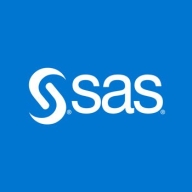

SAS Access and Teradata are widely used in data management and analytics. Teradata generally has the upper hand due to its robust features and high-performance capabilities.
Features: SAS Access connects to diverse data sources, integrates seamlessly with existing systems, and offers powerful analytics capabilities. Teradata provides high-performance data warehousing, is highly scalable, and supports advanced analytical functions. These features make Teradata advantageous for large-scale data processing needs.
Ease of Deployment and Customer Service: SAS Access offers a straightforward deployment process with extensive support options for quick integration. In contrast, Teradata requires a more complex setup but offers comprehensive support and documentation to assist users. While SAS Access is easier to deploy, Teradata's capabilities may justify the more involved setup process.
Pricing and ROI: SAS Access has a lower initial cost, appealing to businesses with budgets constraints. However, Teradata often provides a higher ROI over time, thanks to its efficient data processing for large datasets. The higher cost of Teradata can be offset by long-term benefits that many users find valuable.
| Product | Market Share (%) |
|---|---|
| Teradata | 0.8% |
| SAS Access | 0.4% |
| Other | 98.8% |


| Company Size | Count |
|---|---|
| Small Business | 26 |
| Midsize Enterprise | 12 |
| Large Enterprise | 49 |
Teradata is a powerful tool for handling substantial data volumes with its parallel processing architecture, supporting both cloud and on-premise environments efficiently. It offers impressive capabilities for fast query processing, data integration, and real-time reporting, making it suitable for diverse industrial applications.
Known for its robust parallel processing capabilities, Teradata effectively manages large datasets and provides adaptable deployment across cloud and on-premise setups. It enhances performance and scalability with features like advanced query tuning, workload management, and strong security. Users appreciate its ease of use and automation features which support real-time data reporting. The optimizer and intelligent partitioning help improve query speed and efficiency, while multi-temperature data management optimizes data handling.
What are the key features of Teradata?In the finance, retail, and government sectors, Teradata is employed for data warehousing, business intelligence, and analytical processing. It handles vast datasets for activities like customer behavior modeling and enterprise data integration. Supporting efficient reporting and analytics, Teradata enhances data storage and processing, whether deployed on-premise or on cloud platforms.
We monitor all Data Integration reviews to prevent fraudulent reviews and keep review quality high. We do not post reviews by company employees or direct competitors. We validate each review for authenticity via cross-reference with LinkedIn, and personal follow-up with the reviewer when necessary.